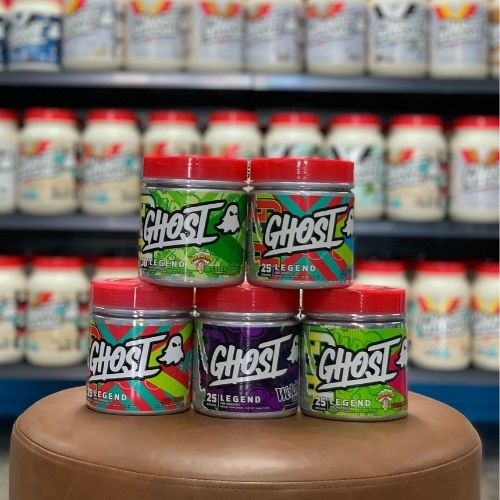Nutrition, Supplements
Can Pre Workout Cause Liver Damage? How to Prevent it!
You’re about to crush your workout. You’ve got your gear, your motivation is sky-high, and you’re reaching for your trusty pre-workout supplement. But then, a thought hits you – could this pre-workout be harmful to your liver? It’s a question that’s been circling the fitness community, causing a bit of a stir.
Let’s dive in and separate the facts from the fiction, ensuring you can hit your workout with confidence and peace of mind.
Is it possible for pre-workout to cause liver damage?
There’s no simple answer to this. Some studies suggest that certain ingredients found in pre-workouts could potentially cause harm to your liver. However, this generally occurs when these supplements are misused or consumed in excessive quantities.
What are some pre-workout ingredients that may cause liver damage?
While there’s no denying the significant role fitness supplements play in enhancing our workouts, it’s equally important to be aware of the potential risks they pose. Let’s take a closer look at some pre-workout ingredients that may potentially cast a shadow on your liver health.
Protein
There’s a potential link between protein intake and liver function concerns (1). While protein is essential for muscle building and is commonly found in pre-workout supplements, it’s important to consume it in moderation. However, more evidence is needed to establish this connection firmly. Always remember the importance of balance in your diet.
Dimethylamylamine (DMAA)
DMAA is a stimulant known for its energy-boosting properties. However, it’s not all sunshine and rainbows. DMAA has been linked to liver failure in severe cases (2). Owing to these risks, many DMAA-containing supplements have been discontinued in the US. Currently, manufacturers mostly use amino acids to replicate the effects of DMAA.
Niacin
Niacin, a form of Vitamin B3, is often used in pre-workouts to aid intense training sessions. Generally, Niacin has minimal side effects, but if consumed in high doses, it can lead to elevated liver enzymes (3). As always, moderation is crucial.
Other factors that can cause liver damage
While we’ve focused on pre-workout supplements, it’s important to remember that various other factors related to your workout routine can also potentially impact your liver health.
Pre-Workout Habits
Before hitting the gym, many of us rely on certain rituals or habits to get in the zone. This could include consuming energy drinks or coffee for a caffeine boost. However, excessive consumption of such beverages, especially those high in sugar and additives, can put undue stress on your liver.
Also, not giving your body enough time to digest food before a workout can lead to issues. Always make sure to eat at least an hour before your workout to give your body time to process the nutrients properly.
During Workout Habits
While working out, it’s essential to stay hydrated. However, overhydration can be just as harmful as dehydration. Drinking excessive amounts of water can dilute your electrolytes, leading to a condition called hyponatremia, which can indirectly affect your liver. It’s crucial to find a balance – listen to your body and drink when you’re thirsty.
Post-Workout Habits
After a workout, it’s tempting to reward yourself with a big meal or even an alcoholic beverage. But these post-workout treats can be hard on your liver. Large meals right after exercising can cause your liver to work overtime, while alcohol can cause direct damage to liver cells. Instead, opt for a balanced meal with a good mix of protein, carbs, and fats, and always drink alcohol in moderation.
What are some tips for helping prevent liver damage while taking pre workout?
1. Moderation is Key
Consuming pre-workout supplements in smaller amounts can significantly reduce the risk of drug-induced liver injury. Overdoing it may lead to unwanted side effects.
2. Avoid Proprietary Blends
Supplements that list their ingredients as a ‘proprietary blend’ can be risky as you don’t know the exact amounts of each ingredient, making it hard to avoid overconsumption which can lead to liver disease. Opt for products that clearly label the quantity of each ingredient.
3. Healthy Diet
A diet rich in foods promoting liver health can counteract potential harm from weight loss supplements or pre-workout mixes. Beet juice, for instance, may help reduce oxidative liver damage.
4. Rest and Recovery
Strenuous exercise and weight lifting, especially if you’re not used to it, can cause elevated muscle enzymes without actual liver damage. Allow your body sufficient rest and recovery time between workouts.
5. Stay Hydrated
Proper hydration aids in processing supplements and maintains overall liver health, countering some of the potential negative effects of bodybuilding supplements
6. Avoid Anabolic Steroids
Anabolic steroids are man-made chemicals that imitate testosterone. While they can dramatically build muscle mass, oral formulations are also highly toxic for the liver and illegal in some countries.
7. Be Careful in Using Herbal Supplements
While herbal supplements such as green tea extract are praised for their health benefits, excessive consumption can negatively impact your liver (4). Given that the FDA doesn’t strictly regulate herbal supplements, they’re often only removed from the market following reports of adverse effects.
8. Consult a Healthcare Professional
Always seek professional advice before starting any new supplement regimen to avoid potential liver-related side effects from your pre-workout or other dietary supplements.
Can taking a pre workout supplement cause liver damage? Our final wrap up
While there’s some evidence to suggest that certain pre-workout ingredients could potentially harm the liver, it’s important to remember that these cases are typically linked to misuse.
When used responsibly, pre-workout can be a safe and effective tool for enhancing your gym performance. As always, if you have any health concerns, it’s best to consult with a medical professional.
References:
- Lang S, Martin A, Farowski F, Wisplinghoff H, Vehreschild MJGT, Liu J, Krawczyk M, Nowag A, Kretzschmar A, Herweg J, Schnabl B, Tu XM, Lammert F, Goeser T, Tacke F, Heinzer K, Kasper P, Steffen HM, Demir M. High Protein Intake Is Associated With Histological Disease Activity in Patients With NAFLD. Hepatol Commun. 2020 Mar 26;4(5):681-695. doi: 10.1002/hep4.1509. PMID: 32363319; PMCID: PMC7193126.
- Foley, S., Butlin, E., Shields, W., & Lacey, B. (2014). Experience with OxyELITE pro and acute liver injury in active duty service members. Digestive diseases and sciences, 59(12), 3117–3121. https://doi.org/10.1007/s10620-014-3221-4
- LiverTox: Clinical and Research Information on Drug-Induced Liver Injury [Internet]. Bethesda (MD): National Institute of Diabetes and Digestive and Kidney Diseases; 2012-. Niacin. [Updated 2020 Jul 9]. Available from: https://www.ncbi.nlm.nih.gov/books/NBK548176/
- LiverTox: Clinical and Research Information on Drug-Induced Liver Injury [Internet]. Bethesda (MD): National Institute of Diabetes and Digestive and Kidney Diseases; 2012-. Green Tea. [Updated 2020 Nov 20]. Available from: https://www.ncbi.nlm.nih.gov/books/NBK547925/

